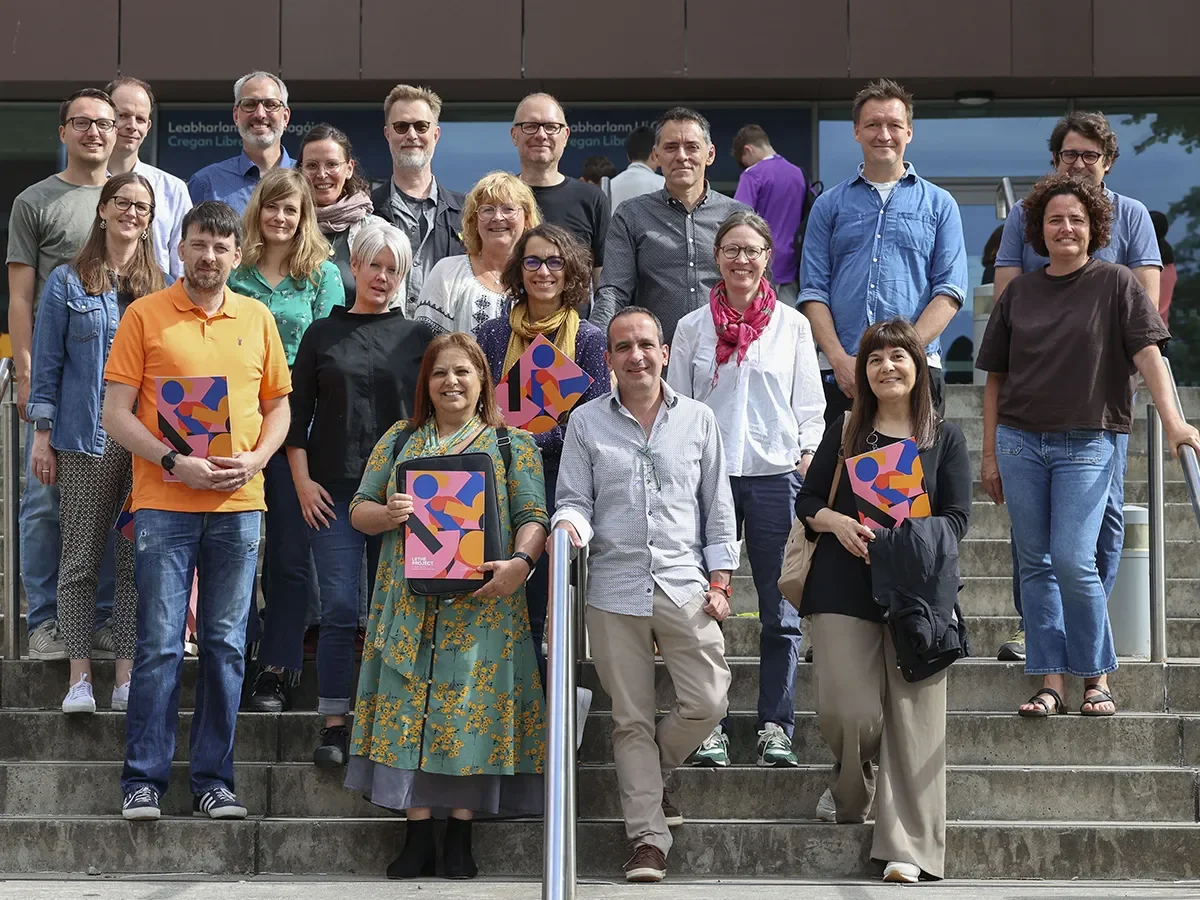

International LETHE project meeting underway on St Patrick's Campus
Dublin City University’s history education team hosted a meeting of the international members of the LETHE project from Spain, Sweden, Greece, Germany, Switzerland, Italy and Portugal in the Institute of Education at St Patrick’s Campus between 19 and 21 June.
The LETHE project, funded by Erasmus Plus, is a school history project that is focused on the development of a digital toolkit for students’ learning and teachers’ planning that aims to enhance the introduction of key competences and critical thinking. It seeks to strengthen social inclusion by highlighting the role different cultural and social groups have had in the development of the current EU over time.
The project name, LETHE, comes from Greek mythology. Lethe was the name of one of the rivers of the underworld of Hades. It was also known as ‘The River of Oblivion’ because those who drank from its waters forgot the past.
The LETHE project seeks to acknowledge the multicultural and diverse background of European History and to contribute in the creation of inclusive classrooms through the use of intercultural approaches. In light of the growth of far-right movements and the rise of hate crimes against minority groups, this effort is more important and significant than ever before and is a crucial component in the building of a critical and informed citizenship.
Dr Caitríona Ní Cassaithe, one of the project’s Principal Investigators, spoke about its aims:
“Across Europe, history lessons are often text-book based, anchored in factual interpretations and characterised by traditional teaching strategies that promote rote learning. Even teaching materials used in the teaching of history place little emphasis on the development of children’s historical thinking and often teaching activities are focused primarily on comprehension and vocabulary instruction. Providing teachers with effective professional development in innovative teaching strategies and developing approaches that can serve as models to implement evidence-based strategies is imperative, especially if we aim to construct new links among teachers, students and the discipline of history and to introduce critical thinking skills.”
Since 2021, the Lethe project partners have been working to identify hidden histories from across Europe. A hidden story is a historical account that is suppressed, disregarded, or overlooked for a variety of reasons. By identifying invisible themes that are historically important, this project aims to create intercultural and inclusive materials that integrate the wide variety of cultures that have influenced and populated Europe and that represent the diverse collectives usually left behind in historical narratives.
Having identified and gathered these stories, the project team will now create an online teaching intervention that is both evidence-based and object-based. This design seeks to enable creative, critical, active and student-centred learning in virtual environments by introducing methods of investigating historical sources, building informed arguments and the creation of new narratives focused on daily objects and sources that reveal stories about the invisible individuals in history. This open-access online resource will be available to teachers of 10-14 year olds across Europe and will include a series of audiovisuals that introduce those “hidden stories” and a Teacher Toolkit that will guide teachers on how to introduce active, creative and critical learning in History classrooms.
